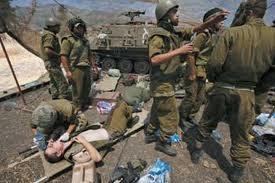Well informed sources uncovered to Al-Manar Website the facets of the Five Year Plan being currently crystallized by the Strategic Planning Division at the Israeli military headquarters.
By Nader Ezzeddine
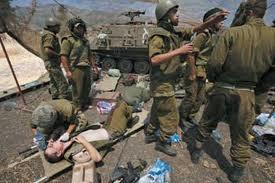 By the end of July 2006 War when the Israeli enemy was historically defeated for the first time since the early years of the occupying entity, and after the Winograd Report which held both the political and the military leadership responsible for what it described as " disappointments" of its aggression against Lebanon, the Israeli military leadership had to lay out a new five-year plan focusing on the variables in the weightings of the regional powers and observes the immense development at all levels. That day, the enemy put down its new plan and started conducting maneuvers named "Turning Point" whose main goal was to examine all the facets of the Plan.
By the end of July 2006 War when the Israeli enemy was historically defeated for the first time since the early years of the occupying entity, and after the Winograd Report which held both the political and the military leadership responsible for what it described as " disappointments" of its aggression against Lebanon, the Israeli military leadership had to lay out a new five-year plan focusing on the variables in the weightings of the regional powers and observes the immense development at all levels. That day, the enemy put down its new plan and started conducting maneuvers named "Turning Point" whose main goal was to examine all the facets of the Plan.
The Five Turning Point maneuvers were ended with the largest maneuver in the enemy's history testing its army's readiness and its internal front in case of any confrontation with the enemies of "Israel"; however, the results were disappointing for the military leadership because not more than 15% of the civil society was responsive. No wonder because Israel which wanted to boost the morale and assuring readiness had not observed its failure when it had proven otherwise what it was ambitious for and that it had been unable to protect it at all. This is what has been paradoxical about its historical dogma which had attracted six million Jews from all over the earth when it pledged that "The Promised Land" would be the only secure place for them in this world, where no hand would ever be able to reach them.
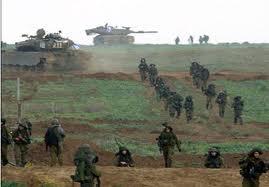 The military leadership was unable to answer the most important question on the minds of the Israelis and that is: How could the Israelis be secure when 50,000 tons of rockets are daily launched over their heads at a rate of one rocket per minute according to their estimations?
The military leadership was unable to answer the most important question on the minds of the Israelis and that is: How could the Israelis be secure when 50,000 tons of rockets are daily launched over their heads at a rate of one rocket per minute according to their estimations?
Therefore, the Israeli plan ended with an additional failure, and a new five year plan was supposed to be coordinated in order to simulate the new phase. The unpredictable surprises occurred and forced the Israeli military to drastically change its strategy. So! What happened?
The Southern Front is in Jeopardy if the Egyptians Conclude their Revolution:
Well informed sources of the situation in Israel uncovered to Al-Manar Website the facets of the Five Year Plan extending from 2012 till 2017 being currently crystallized by the Strategic Planning Division at the military headquarters.
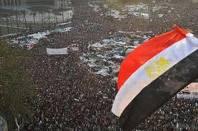 The plan being prepared by Deputy Chairman of the Joint Chiefs of Staff Major General Yair Naveh, and the Director of the Strategic Planning Division in the enemy's army affiliated with the army and in charge of Cyber War Prevention IAF Headquarters Brigadier General Amir Eshel, and the Military Intelligence Division (Aman) and the Division for surveillance, command and control, and communications in the Israeli army significantly focus on the regional changes that have taken place in the region and their seismic influences on the capabilities and the priorities of the Israeli army in terms of armament, training and numbers.
The plan being prepared by Deputy Chairman of the Joint Chiefs of Staff Major General Yair Naveh, and the Director of the Strategic Planning Division in the enemy's army affiliated with the army and in charge of Cyber War Prevention IAF Headquarters Brigadier General Amir Eshel, and the Military Intelligence Division (Aman) and the Division for surveillance, command and control, and communications in the Israeli army significantly focus on the regional changes that have taken place in the region and their seismic influences on the capabilities and the priorities of the Israeli army in terms of armament, training and numbers.
The first factor they took into account was the emerging situation on the southern front with Egypt, which was dormant for the past three decades, that is since signing the Peace Treaty of Camp David between the two countries in 1979. It is true Egypt is still abiding by the conditions of the Peace Treaty signed with Israel, yet the internal changes occurring there forces the Israeli army to get ready for any changes. Because it can never ignore from now on Egypt's possibility of joining the so called "axis of evil," and the possibility of converting the southern front into a flaring front someday.

|
About this matter, General Dr. Mohammad Abbas in an interview with our website said:" The transitional phase our region generally passes through and Egypt in particular has turned into worry for the Israeli army." The previous plan according to General Abbas observed only three threatening factors: 1. The possibility of confrontation with the resistance in Lebanon and in Palestine. |
However, in the wake of the changes in the region, General Abbas sees:" Threats cannot be limited to those three parties that it has become necessary for the Zionist enemy to consider the threat being projected from Egypt. As after what has happened and is happening there, Egypt will never be from today on the way it used to be during Hosni Mubarak's rule; although the transitional government and the military council are still holding on to Camp David Treaty of Peace and other similar ones, Israel believes it would be within the circle of danger provided the revolution would finalize its goals. Till today the military doctrine is still prone to enmity against Israel; nevertheless, the prevailing policy by then and the agreements signed had restrained that army and disallowed it to move over decades. Nonetheless, the Egyptian people who have not neutralized their relations with the Israelis are not going to do that in the future and are not going to approve of the activation of such relations by the authority especially that the people are going to elect their real representatives this time."
What General Abbas sees also intersects with what other sources have informed us with and assured to us that the Israeli army that had reduced not only its troop numbers on the southern front but also its armament and its training; the same sources added, also, that the army which had suspended its amphibious capacities and scenarios set to cross the Suez Canal will have to take such scenarios into account now according to its new plan.
The Masses New Protests: "A New Military Front"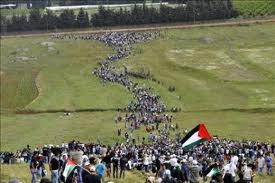 The Israeli plan also observes the public protestations which took place in the commemoration of the Palestinian "Nakbah," when Palestine was split into two Mid of May, and on the 5th of June, when Israel launched a war against the Arab countries; such protestations are expected to take place in the future, too. The sources affirmed that the enemy classified what happened as a new challenge encountering the Israeli army which in turn considers those protestations a new military front. In the light of the probability of repeating its confrontation with massive public protestations on Israel's different fronts, the strategic planners of the new five year plan are reckoning that such protestations do require developing a method of a new military confrontation in addition to arming the Israeli army with nonlethal weapons.
The Israeli plan also observes the public protestations which took place in the commemoration of the Palestinian "Nakbah," when Palestine was split into two Mid of May, and on the 5th of June, when Israel launched a war against the Arab countries; such protestations are expected to take place in the future, too. The sources affirmed that the enemy classified what happened as a new challenge encountering the Israeli army which in turn considers those protestations a new military front. In the light of the probability of repeating its confrontation with massive public protestations on Israel's different fronts, the strategic planners of the new five year plan are reckoning that such protestations do require developing a method of a new military confrontation in addition to arming the Israeli army with nonlethal weapons.
General Abbas commented his confirmation that Israel has to" consider the Arab flooding protestations in any future war; for after it was surprised by the masses movement towards the borders of Palestine upon the Commemoration Day of "Nakbah," it will have to take into account in any strategy it adopts the way how to repel such protestations without raising the international opinion against it the way it happened in the first confrontation.
Always Haunted by Iran and Syria Our sources proceed talking about the new five-year plan and that the Israeli army is going to complete moving all its camps and bases from the Middle of "Israel" to An-Naqab region except for the Central Command Staff Headquarters. Moreover, the new five-year plan will consider the broad circle of the Iranian danger and its propagations in the region in addition to Iran's proceeding with its nuclear program and its arming anti-Isareli organizations, such as Hizbullah and Hamas Movement, with sophisticated weaponry. Furthermore, the plan takes into account the destabilized situation in Syria; our sources reported that the Israeli military officer who was explaining the plan said that:" Syria has become an arsenal for all varities of lethal weaponry."
Our sources proceed talking about the new five-year plan and that the Israeli army is going to complete moving all its camps and bases from the Middle of "Israel" to An-Naqab region except for the Central Command Staff Headquarters. Moreover, the new five-year plan will consider the broad circle of the Iranian danger and its propagations in the region in addition to Iran's proceeding with its nuclear program and its arming anti-Isareli organizations, such as Hizbullah and Hamas Movement, with sophisticated weaponry. Furthermore, the plan takes into account the destabilized situation in Syria; our sources reported that the Israeli military officer who was explaining the plan said that:" Syria has become an arsenal for all varities of lethal weaponry."
As far as the Syrian front is concerned, General Abbas sees that "Israel knows today more than any time in the past that the Syrian regime is too strong and it is ready to encounter Israel. And that the Syrian army has remained unified after all the events which stormed the country contrary to what Israel was betting on namely the disintegration and dissidence of the Syrian army and the society, this did not happen and will never happen."
General Abbas added: "Israel could not accommodate 300,000 settlers moving from the North during the 2006 War and it is not prepared for that. Thus, if the maneuvers have failed in protecting the Israeli depth in spite of its developing what is described as the Iron Dome which is originally suspected for its incapability to intercept short range and medium range rockets, then how will Israel be able to accommodate a whole nation migrating and in awe when rockets start falling from all over around?"
From Turkey to Chile… the New Direction for the Israeli Officers In connection with the above our sources following up the Israeli-Turkish relations and military cooperation informed us that the Israeli army has decided to send its officers graduating from the military national security college in their academic studies to Chile in South America instead of Turkey as it used to go in the training program set during the past ten years.
In connection with the above our sources following up the Israeli-Turkish relations and military cooperation informed us that the Israeli army has decided to send its officers graduating from the military national security college in their academic studies to Chile in South America instead of Turkey as it used to go in the training program set during the past ten years.
The army decision has come out in the light of the deteriorating military and political Turkish-Israeli relations during the past years.
Visiting a foreign army is considered a significant part in the academic program at the military national security college and at all other military Israeli academies.
In the past decade, the enemy army has been used to send all its officers for a visit to the Turkish army which had well established and distinctive relations. Such visits included educational visits, meetings with high ranking officers in addition to visits to the various armed forces; nonetheless, the situation today has changed; and according to the same sources the first group of officers from the military national security college headed by Brigadier Gershon Ashwin will be off for Chile within two months and prior to the graduation day for the officers.
The original Report in Arabic Here
